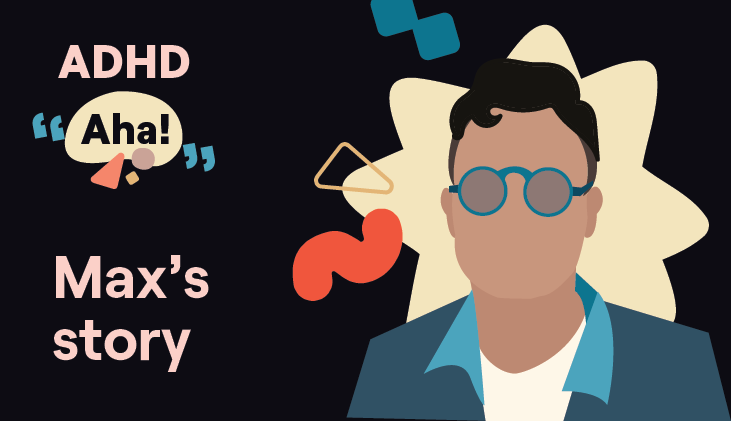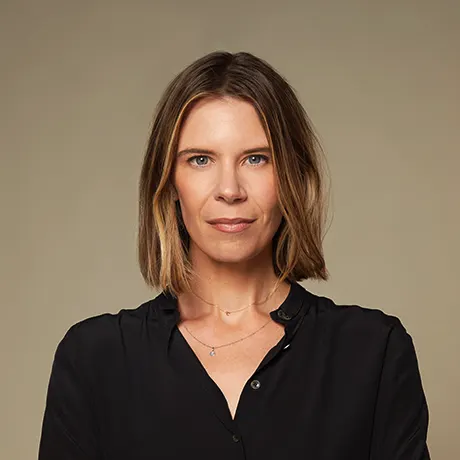Stay in the know
All our latest podcasts delivered right to your inbox.
Max Siegel (he/they) was diagnosed with ADHD as an adult. Throughout that process, Max encountered some of the same fears and myths around ADHD as he does around transness: “You just want an excuse.” “You just want to be lazy.” Max, an LGBTQ+ transgender and neurodiversity inclusion speaker and consultant, found that coming out gave him resilience. And that same resilience helped him cope with his ADHD diagnosis.
Max and host Laura Key also talk about ADHD symptoms and gender identity. Max, who was assigned female at birth, was socialized as a woman until his 20s. He talks about anxiety, rejection sensitivity, and other ADHD-related challenges he’s faced — and how ADHD can get missed because of a person’s gender.
A note about this episode: Max talks about how he felt he needed to “convince” his doctor he had ADHD. We can’t speak to the differences between how ADHD is diagnosed and treated in the UK vs. the United States. However, well-trained and credentialed evaluators should be capable of making accurate diagnoses without convincing.
For detailed, easy-to-understand information on ADHD diagnosis in adults, listen to Season 2 of our Understood Explains podcast.
Related resources
Episode transcript
Max: A big realization for me was that I can choose to be kind to myself about these things. That I can choose rather than saying this is something that's wrong with me and I have to fix it. I can instead choose to say this is a part of me and I can work with it. And that makes things significantly easier.
Laura: From the Understood Podcast Network, this is "ADHD Aha!," a podcast where people share the moment when it finally clicked that they or someone they know has ADHD. My name is Laura Key. I'm the editorial director here at Understood. And as someone who's had my own ADHD "aha" moment, I'll be your host.
I am here today with Max Siegel. Max is an LGBTQ+ transgender and neurodiversity inclusion speaker and consultant. Max uses they/he pronouns. And I am so happy, Max, that you're here today.
Max: Hey, Laura. Thanks for having me.
Laura: And you are in Hastings, which last time we chatted, you told me is go to London and then go right? Correct.
Max: Yes, very broadly.
Laura: So, Max, let's start by talking about your ADHD diagnosis. When were you diagnosed and what was happening around that time?
Max: January 2022. It was a cold, dark evening in Hastings. I was on a slightly awkward FaceTime call with a slightly awkward psychiatrist that I had paid through the nose to speak to and waited several weeks, and then spent an hour and a half convincing him of something that I was already pretty sure of.
Laura: Convincing him. Tell me more about this.
Max: Well, it's interesting because I'm not sure how different the approach is for you folks in the U.S., but I think in the UK, wider understanding about ADHD and particularly ADHD in people who are assigned female at birth. So I'm a trans man, I was assigned female at birth, and I was socialized as a woman until my late 20s. So the language around ADHD hasn't really evolved since the late 1990s, early 2000s.
So for example, the forms you have to fill in here that they give you to tick the box or write yourself X, Y, or Z on these on these ideas are what I understand to be quite antiquated or at least out-of-date symptoms, I guess. So things like does this person always seem to be on the go? Does this person fidget with things? And it's like, yes, I do fit into these, but actually the majority of the symptoms I struggle with are only just starting to be recognized.
So when I say "convinced" it was more of a I'm going to speak specifically about the things that I know you're looking for because I need this. And that's not to manipulate the outcome. It's just because I understand from the paperwork you've sent me and the research that I've done that you will be placing a higher emphasis on things which I don't find as difficult.
Laura: And what were the kinds of things that you were struggling with more?
Max: Anxiety, rejection sensitivity, forgetfulness, demand avoidance, massively, any kind of interest-based issues. So particularly for me at the time, I was still working in a full-time job for a online dating app. And if I was doing a task that I found interesting, I would smash out of the park. If I didn't like it either, wouldn't do it — which if you've ever had a full-time corporate job, you will know is rarely an option — or I would do it badly. It would be late and I would end up frustrating the people I was working with, particularly my CEO, because it was a small company.
Because she would be coming to me saying, "Max, why haven't you done this? You had a clear deadline. You knew you had to do it." And the answer was, I didn't want to, to the point that every time I tried to, I was completely paralyzed. That doesn't go across particularly well.
But I also think my own understanding of ADHD is still growing. I am a baby in ADHD time, even though I was diagnosed at 29. I'm still very much learning so much about this and there are so many things that I am still realizing — oh, that's an ADHD thing. I had no idea. So it was very much a balance of saying I know what I need to say, but I also know what is and isn't correct. And I don't think that the person who was diagnosing me was trying to catch me out. I just think he was adhering to a criteria which is outdated and not necessarily practical for the socialization that I've had.
Laura: Yeah, I'm not familiar with the differences between how diagnosis works and England versus the U.S., for instance. But what you're saying sounds really familiar to me as a woman with ADHD, not recognizing the symptoms because they were actually very similar to what you were just describing around the anxiety and the paralysis, the forgetfulness, etc. And it was very easy to just blame them as character flaws.
Max: Yes, I'm just lazy. I'm just stupid. I don't care enough about my job. This is my fault. Rather than actually there is a real medical thing which is making this difficult for me.
Laura: Tell me more about what led you to that conversation with the psychiatrist.
Max: The reason why I decided to pursue a diagnosis was two specific reasons. The first one was validation, which I think so many people can understand. Because no matter what you do, there's always going to be a part of you that thinks "Am I faking this? Have I made this up? Do I just want an excuse?"
Laura: That doesn't go away, by the way. Yeah.
Max: No. And it's something else we went through with transition. And now I realize, reflecting back on it, that, you know, if you have ADHD, people who don't have ADHD don't spend that much time thinking about whether or not they do. They don't spend that much time asking and answering these questions. But I think I needed that validation. I needed someone to say to me, "I am a medical professional who specializes in this, and I'm going to tell you that you have ADHD."
The other thing for me was to be able to try medication. At the time, I was working in a full-time job. And I liked the company I was working for, but I was really struggling. And I actually remember saying to my partner, "I need to know, is this job a problem or is it my ADHD?" Turns out it was both, but I needed to know if I can just take some medication or try some medication that allows me to focus, is that going to make this experience a lot better?
Medication actually didn't turn out to be a long-term solution for me. But what it did tell me is that if I am medicated to the eyeballs and I can focus on anything and I still hate what I'm doing, it's time to leave.
Laura: Is that what happened?
Max: Oh, hell, yeah. I think I handed in my notice maybe a month after my diagnosis. And obviously because it was a U.S. company, I had a two-week notice period and then I was very suddenly unemployed by choice. Or as my friend calls it, my temporary retirement, which was at 30. Very enjoyable.
Laura: How long was the temporary retirement?
Max: I would say a couple of months, whilst I figured out what I wanted to do. I had a vague notion. I thought oh, I'm going to do content creation full time. I'm an internet generation queer, always have been. Have a vague Instagram content creative presence. So I kind of messed around with that for a while and then realized that actually there's a lot more money and a lot more fun to be had in the corporate side of things.
But there was a brief period of time where I was quite literally a househusband, which I loved. You know, I'd get up and take the dogs for a walk and do the laundry and just live my best 1950s housewife life. I also can't cook, so I was pretty useless. But I want to give a shout-out to Lori, my partner, for just letting me letting me have that moment of crisis.
Laura: I was just going to ask, how did it how did your wife feel about this?
Max: She was incredible. She always has been. She is a TV producer. She also has suspected ADHD. So she absolutely understood. I think she was probably the person who was most pro the decision, because she could see the day-to-day difficulties that I was having. But it was a period of clarification for me. It was what is my life when I'm not defined by my work? And what do I want to do, and what things do I enjoy, and what things do I make myself do? So as much as I was a broke bitch, I was a very happy broke bitch.
Laura: How was your focus during that time period? I find that when I have unstructured time, I really struggle.
Max: It's interesting because I don't think I had that much to focus on. And actually something that I see as a really big treat for myself is just letting my brain run wild. So the ultimate treat is just not having to do anything. Having a day where I don't know what time is. I got up. I decided that I wanted to clean the bathroom. Halfway through, I got bored and went downstairs and started trying on clothes. It's fine. I'll come back to it later. That's like a good day, because I don't have to structure it.
So I feel like all of that in-between time, I just allowed myself to do the things I wanted to do and kind of follow my own brain. When I'm not doing anything, that is when I'm most creative. I was lying on the beach last week and every 10 minutes picking up my phone to note down a new idea because my brain is like, ooh, let's go off on this thought process and think about what this would look like and come up with that. So in some ways I find it really fun because it's kind of like being a passenger on my own brain train. And I'm not entirely sure where we're going, but I'm just along for the ride.
Laura: I love that. I'm really happy that so early in your ADHD trajectory that you've harnessed that already. It's really impressive.
Max: It's an ongoing — an ongoing skill that I'm building. Useful chaos. We'll come up with a word for that.
Laura: I remember when I mentioned this to you when we chatted last, you were nodding your head a lot when I was talking about the hormonal connection to ADHD. And I wonder if there's anything that you want to speak to on that front.
Max: Oh, for sure. Lori and I will quite often refer to our house as The House of Hormones, because I am on testosterone for transition. I have been for about two and a half years. Lori. babe, I'm sorry if you hear this, I'm going to drop you in it. Lori's going through perimenopause.
Laura: I mean, I'm on my way, Lori. If you're listening, Lori, we can talk.
Max: Occasionally, she'll kind of forget that I was a woman for a while, and she'll be like, "Oh, you wouldn't understand. Sometimes this happens when you're on your period." And I'm like, "Babe? I've been there. I know it." She sent me off to buy some tampons recently. She was like, "You won't be embarrassed, will you?" And I'll say, "Girl, I've been there. Trust me, you didn't even have to tell me what kind you need." I'm very educated for a man.
Yeah, I feel like the hormone side of things is similar to ADHD. Something that as a general public, if you're not in the medical sphere, you do not realize how much your hormones mess with you and mess with everything. There are so many weird things that your body does because of your hormones. For me and ADHD and hormones, I found that, for example, if I get to the end of a shot cycle — so my testosterone shots are every 11 to 12 weeks. I get to the end of that short cycle, I can feel my attention issues getting worse. My ability to sit still, my ability to work, because my testosterone levels are dropping. I'm starting to feel more tired. I'm not sleeping as well.
But overall, I think it comes down to the same kind of in-tune-ness. That's definitely not a word but we're going to run with it. That connection with your body and realizing that you're not an awful person, you're not miserable and grumpy and nasty. You're just having a bit of a hormone fluctuation, and that's fine. And ADHD is the same thing. It's not particularly well understood. A lot of the time, you will speak to a medical practitioner, and they'll go, "We're going to try this." And that's always the word — try — because they don't actually know.
And yes, most medical treatment is a combination of trying different things. But if you think if you went in with a broken leg and they said, "I'm going to try putting a cast on, it might not work," you'd probably think that's weird. Like, surely you know how to treat this. Whereas with hormones, the same with ADHD, the same with transition-related things, it's a bit like, hmm, yeah, we think you have this thing. And we're going to try this thing. It might not work. It might make you feel significantly worse. Sorry. And then they just leave you to it.
Laura: Talk to me about the intersection of neurodiversity and being trans.
Max: How much time do we have?
Laura: I mean, yeah, let's get into it.
Max: OK, let's do it. Let's do this in two sections. Let's do the section which is the more broad commonality between the two in terms of how many people who are trans are also neurodiverse. And then we'll talk about kind of my own experiences. Because I feel like it's two separate stories.
Laura: Perfect.
Max: So from a wider perspective — now, I will caveat that there is very limited research on transness and ADHD. There is only just starting to be broader research being done. And I just from my own personal experiences, you know, the majority of my friends are part of the LGBTQ community, and a lot of them are neurodiverse in some way. And I have my own personal theories. But there's also some concepts that are emerging, one of them being the relationship between ADHD and trauma.
And it's a tricky conversation, because often people will argue that trauma symptoms can look very much like ADHD symptoms, but actually aren't ADHD, or vice versa. Personally, I'm going to take the same approach that I do to a lot of trans-based conversations, which is bring me a massive accredited study and tell me what's happening. Otherwise, I'm not listening to your opinions, because I don't think they're helpful.
Laura: I appreciate that.
Max: But my kind of approach to it is people who are LGBTQ are obviously going to experience more trauma. That is always going to be true until we have complete equity and inclusion, which we are not going to have for a long time. You know, I am someone who grew up with a fairly supportive family. Although my parents didn't find it easy when I came out, they didn't, you know, abandon me. They've tried their best. I've had a very privileged upbringing on the whole, and I still definitely have some trauma around growing up as a young queer person in a non-supportive environment and growing up as a trans person in a cis-normative environment. So I think that you will see that connection with trauma.
But on a I guess a more broad level, I think that being queer, being trans, having any kind of connection to the LGBTQ community forces you to have more introspection. Because you have to find that out within yourself. In a world where it is assumed that everybody is heterosexual and cisgender until proven otherwise, you have to do some pretty deep soul searching to figure out who you are.
That soul searching matches the soul searching that people are doing with ADHD. That understanding of yourself, of how does my brain work when compared to other people's? What does my life look like? For me and for a lot of other people I've spoken to, it really translates because when you start looking at yourself critically — and not critically as in negative, but just with a critical eye of what can I understand about how my brain works? — those two things sit hand-in-hand.
And you'll have people who recognize their neurodiversity and then realize that maybe they're not straight. You may have it the other way around. You may have it like me. It was all kind of intertwined. But I think there's a lot to be said about the self-reflection that is required to be able to recognize something within yourself, to know what you don't know. Because you're not taught that you have to kind of piece it together.
On the flip side, for my own experiences of transness and ADHD, the parallels are absolutely wild. There is so much intersectionality there. And the best example I can give you is actually based on something that's happening in the UK right now. A couple of days ago, the BBC, British Broadcasting Corporation, has a program called "Panorama," which has been around for decades, where they effectively investigate a certain topic. They famously lied to Princess Diana to get her to go on the show. But that would be a tangent.
And they recently released a program which was effectively an exposé of private ADHD diagnosis clinics in the UK, so meaning the ones that you have to pay for that I went through that aren't on the National Health Service. And apart from being, for all intents and purposes, I can only assume they were aiming to invalidate a lot of people's diagnoses and disabilities. They effectively lied, or — they went to three different private clinics, got a diagnosis, went to one National Health Service clinic or NHS clinic and didn't get a diagnosis. And this is the same journalist, and is using that as an argument to say that people are being overdiagnosed and that it is effectively a problem.
So if we zoom out from that, we see the mass media invalidating the experiences of hundreds of thousands of people, predominantly women and people who are assigned female at birth, in order to create this manufactured panic about people who might be being diagnosed with ADHD who don't have it. If you take the word ADHD and you put the word trans in, it's exactly the same conversation. And I've been watching all of this unfold and posting about it and actually feeling very upset by it, because it feels exactly the same as being trans in this country.
A group of people who don't know you, don't know really anything about your life, are not medical professionals in this field, have decided that they have an opinion about something you're experiencing. And rather than thinking, "Wow, this person is finding this thing really hard, we should help them," they think, "I'm going to prove that you're lying." And that is — that sucks, for lack of a better word.
Laura: Yeah. Where do you think that comes from? Why the panic around ADHD?
Max: I mean, we've got some deep psychological evaluations of the British media. I think that people are really scared that people will use any excuse not to contribute to society. It works the same with transness. But anyone with ADHD diagnoses or suspected ADHD will be familiar with the idea of, "Oh, you just want an excuse, you just want to be lazy. You didn't want to take accountability for your behavior." People see something that they don't understand. It's a fairly easy target. It's a distraction.
And instead of thinking there are some really horrible things happening in the world right now, it's easier to think it's down to the immigrants, the trans people, and the lazy neurodiverse people who are lying about these things that they've got. Rather than admitting that we might have all played a part in some of the issues that are happening. But that's my very personal view on on the universe right now.
Laura: Thank you. I appreciate that. Are you as comfortable talking about your ADHD as you are in talking about transness and queerness?
Max: Oh, that's a big question. I think from — on a one-on-one level, yes, because the joke we've always made is like once you've come out as trans, it is really hard to care about other people's opinions about a lot of things. Like once you've taken that step of being — and I am very publicly trans, it is my job. I'm all over social media. I'm not on the downplay with this. This is a big part of my life.
I almost feel like the resilience I've had to have for that has helped me with ADHD, because I refuse to be ashamed. I refuse to not talk about this. I refuse to take it as anything other than just a genuine part of me, which is right here, exactly the same as my body, exactly the same as every other personality trait I have. Because I spent a huge amount of my life living in shame and fear and sadness. And I actively grieve for the experiences that I missed. Because of that. I refuse to do it again.
So as much as I, you know, I give kind of trans inclusion talks to audiences of hundreds of people. I'm not quite there yet with ADHD because I don't feel like I have that experience quite yet. But I definitely try and apply the same "let's be really honest." That's so — my old boss would call them the "squeaky bum" moments.
Laura: Just wait, what?
Max: So it's kind of like, you know, when you're going to say something and you're a bit like, ooh, oh God, I can't believe I'm about to say this. That you need to have, like, an open conversation with your kids or your parents or something, and you're like, oh, this is going to be really awkward. Or like a partner. My old boss would call them the "squeaky bum" moments. And she would always say, "These are the most important things to say. Anything that makes you feel like a bit weird and anything that makes your stomach hurt is the most important thing to say."
And that is my ethos with everything, is that I'm just going to say it. Because British people are famously stiff upper lip. They don't say what they mean and it drives me nuts. I'm neurodiverse. I don't understand you. Tell me what you want. So that's how I communicate, is that real up-front, I'm just going to talk about it. If it makes you uncomfortable, that's on you.
Laura: I love that so much. It's great advice. If it makes you uncomfortable, it's important to say it. Yeah.
Max: Yes. Hell, yes.
Laura: Max, is there anything else you want to share with the "ADHD Aha!" audience. Anything at all?
Max: I'm going to share a quote that I actually did a talk about earlier, which is "There are no rules." I have this — I have a tattoo that says it. I can show you. Can you see that?
Laura: I can.
Max: This is where I used to write my to-do lists when I was a kid. So I couldn't lose them.
Laura: That's brilliant. Is that why you put the tattoo there?
Max: Yeah. Yeah. And the reason why I have this is because I like to remind myself that a lot of the time, the things you think you need to do, things you think are an absolute given, you don't have to do it. You can opt out. You don't have to. If you don't want to go to this party because it's going to be really loud and you don't like loud spaces, don't go. You want to see people who are going? Go and have a coffee with them somewhere else. You have to make decisions based off what is going to be best for you, because otherwise things are just going to suck for a really long time.
Take it from someone who, in a lot of people's opinion, made a change that isn't even possible. And I'm here and I'm fine and I'm happy. So the next time you think, well, I can't do this or I can't do that, or you know, this isn't real, take it back to "Is this a rule or is this a choice?" And make the choice that's best for you. Because you'll probably be quite a lot happier.
Laura: Thank you so much, Max, and thank you for being here today. It's been so lovely.
Max: Thank you for having me.
Laura: You've been listening to "ADHD Aha!" from the Understood Podcast Network. If you want to share your own "aha" moment, email us at ADHDAha@Understood.org. I'd love to hear from you.
If you want to learn more about the topics we covered today, check out the show notes for this episode. We include more resources as well as links to anything we mentioned in the episode.
Understood is a nonprofit organization dedicated to helping people who learn and think differently discover their potential and thrive. We have no affiliation with pharmaceutical companies. Learn more at understood.org/mission.
"ADHD Aha!" is produced by Jessamine Molli. Say hi, Jessamine!
Jessamine: Hi, everyone.
Laura: Briana Berry is our production director. Our theme music was written by Justin D. Wright, who also mixes the show. For the Understood Podcast Network, Scott Cocchiere is our creative director, Seth Melnick is our executive producer, and I'm your host, Laura Key. Thanks so much for listening.
Host
Latest episodes
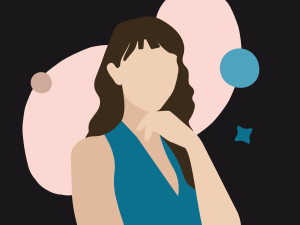
April 30, 2024
Author Ellyce Fulmore struggled with impulsive spending and doing “basic” daily tasks during the pandemic. The pain of coping with that led to her ADHD diagnosis.
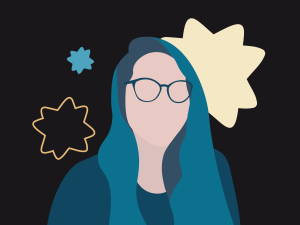
April 16, 2024
ADHD coach Jaye Lin was a gifted kid with undiagnosed ADHD. Now, she’s building communities and helping others cope with ADHD burnout.
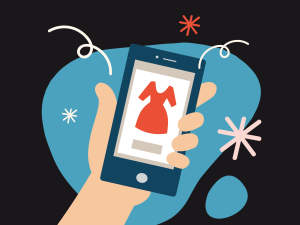
April 2, 2024
Writer Paulette Perhach had money coming in but struggled to keep it in her bank account. An ADHD diagnosis brought her struggles into perspective.
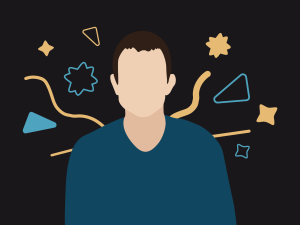
March 19, 2024
Eye to Eye founder David Flink is fighting the “just try harder” myth surrounding ADHD, dyslexia, and other learning and thinking differences.
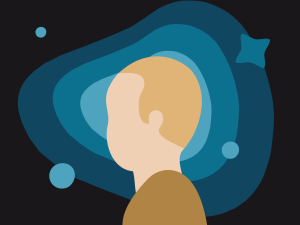
March 5, 2024
Peter Jones used to feel better saying he had a hearing problem rather than considering ADHD. Now, he knows he has ADHD and isn't afraid to say it.
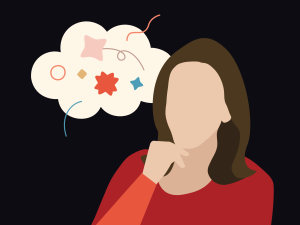
February 20, 2024
Before her ADHD diagnosis, ADHD coach Emily Weinberg thought she was just lazy. But in reality she was stuck in “analysis paralysis.”
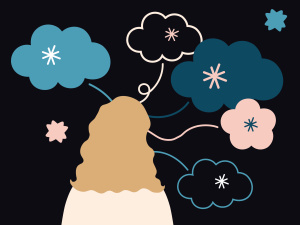
Carol Blumenstein was called an unteachable student. Now, she knows she has ADHD and dyslexia, and supports her five kids who learn differently, too.
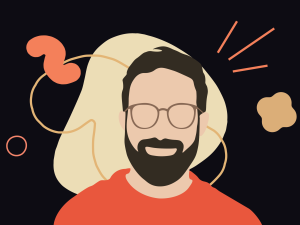
January 23, 2024
Executive coach, actor, and former criminal defense attorney Ernest Anemone shares his ADHD story — and why he questions the term “attention deficit.”
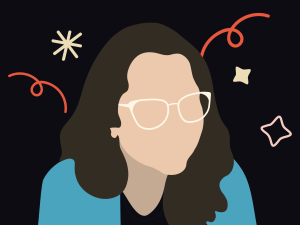
January 9, 2024
ADHD and post-traumatic stress disorder (PTSD) symptoms can look similar. And they can morph into what Hannah calls “a trauma ball of blame.”
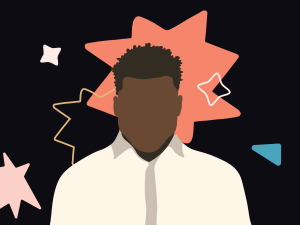
December 26, 2023
Livingston Steele was diagnosed with ADHD about a year into working at Understood.org. His experience and work have given him immense empathy for people with ADHD.
